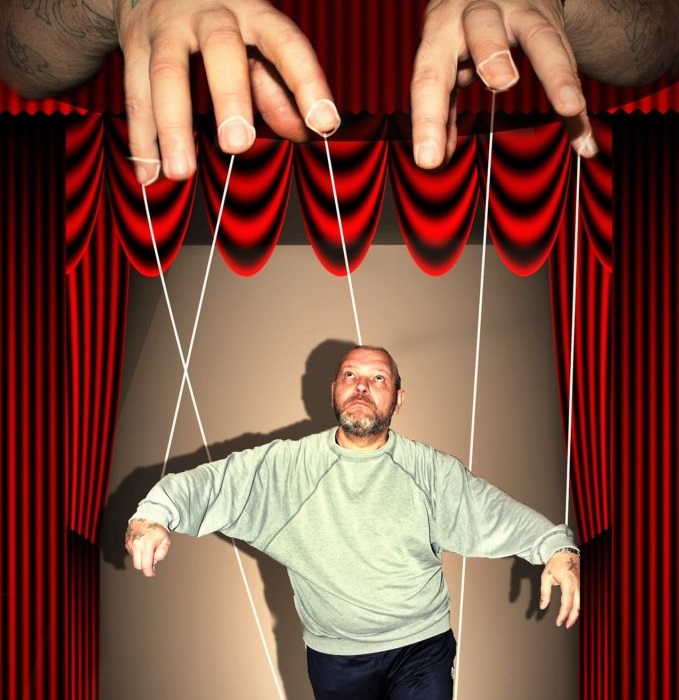If you want to live a contented life as a bachelor, here are six essential ingredients. Like essential nutrients, if you lack any, your singlehood will not be as happy as it might be. I speak from experience. I have lacked in each area, labored in each area, and seen the benefits in each area. Some of these “essentials” apply to the coupled, too, but all of them have special significance for the single.
I’ll say more about each below.
- A good relationship with yourself
- Resolving your Issues with women
- Thinking for yourself
- Self-esteem
- Other interests and sources of meaning
- A positive attitude toward your own singlehood
I’ll say a bit about each.

A Good Relationship with Yourself
No relationship is more important than the one you have with yourself. There is no one closer to you than you, no one who knows what you need better than you, and no one who spends more time with you than you.
If you lack a good relationship with yourself, you will struggle in singlehood for a couple reasons.
First, if you are a single man — unattached, that is — you will not have the validation of a woman to prop you up. You are therefore more reliant on your internal resources for self-support. To the degree that you lack self-care, you will need to make up the deficit by getting it from the outside — and men usually look to women for emotional support.
If you try to live single with a lousy internal relationship, you will be left with an emotional hunger for a woman. Some men try to suck it up and keep going anyway (“I don’t need nobody”). Some try to avoid the lonely yearning through drinking, television, or a host of other distractions. The better solution is to increase your level of self-care, so that you need less care from the outside. If you plug the holes in your own bucket, you won’t be looking to a woman to fill it.
In addition, if you’re an introvert like me, you’ll be spending a lot of lot of time with yourself. If you don’t have a good relationship with yourself, that means you’ll be spending a lot of time with someone you don’t like all that much. That will not make for a happy single life.
Men struggle with establishing good internal relationships with themselves, more than women do. Men are well-instructed that manhood consists of handling your external responsibilities — responsibilities to wife, to family, to kids, to employer, to country. Men tend to be pretty good at taking care of their external lives — career, finances, home repair, family responsibilities. But they often pay little attention to their inner life or their internal responsibilities. Take a look at the literature or media on self-care, for instance. It is almost all written by women for women. I suspect that many men, especially older traditional ones, find the whole subject of self-care squishy, swishy, or feminine.
Self-care is not weak. It is not feminine. Internal support produces internal strength. You can see this at every level, from simple structures to complex organizations. It is what lacks internal support that is weak.

If you lack a good relationship with yourself, you will be prone to the condition I alluded to above — blocked off, in denial, using addictions to avoid your inner life, or else pining for the love of a woman to make up for what you can’t do. You will also struggle to connect to others, which will leave you feeling ever more isolated. If you can’t form a good relationship inside, you can’t establish it with others.
Do a little self-assessment as you read. How are you treating yourself in each area?
- Spending time with yourself, clarifying what you really think, feel, and want (as opposed to what you “should” think, feel, and want)
- Treating yourself well physically (e.g., eating well, getting enough sleep, exercise, and relaxation)
- Mental self-care — getting enough intellectual stimulation and challenge
- Emotional self-care — self-empathy, listening for what your feelings are telling you, accepting rather than pushing them away
- Spiritual self-care (e.g., cultivating sources of meaning and purpose, clarifying spiritual beliefs)
- Supportive self-talk: giving yourself encouraging and reassuring messages, rather than criticism
- Attending to your needs, rather than neglecting them
When I was younger, I was a member of Adult Children of Alcoholics. ACA taught me the importance of a good relationship with the self, and I’ve never forgotten it. They used the metaphor of an inner parent-child relationship. You might find that helpful, too. Think of how a good parent would treat a child they loved. Then try to treat yourself that way.
A contented single life depends on your relationship with yourself. Please make it a good one.
Resolve Your Issues About Women
Plenty of men have Issues when it comes to women. Some men are angry and resentful towards women. Some are insecure and fearful; female validation means too much to them. Some men idealize women; they put them on a pedestal. Some men blame women and look down on them as inferior. Some men are trapped in a “woman bad” mindset, seeing only the worst in them. Other men use women as addictive objects to feed their self-esteem or make themselves feel better temporarily. And some men have been traumatized by women and want nothing to do with them.
I’m not casting aspersions. Some of these men have good reasons for the way they feel (I’m thinking of the traumatized ones in particular). I have fallen into these patterns myself from time to time, especially the insecure, idealizing one. However, if you want to live a contented single life, you have to resolve these issues. They will take you down otherwise. You cannot have peace of mind about singlehood until you have peace of mind about women. It just won’t work. You’ll continue to stew about women, fear them, or be preoccupied with them.
I’ll give you an example of my own hangups. Back when I was a young man, I had a lot of insecurities about women. I saw myself as socially inept. I thought women found me unattractive and boring. I was afraid that I lacked the capacity to be psychologically intimate with a woman; I somehow just didn’t “have what it takes.” Because of this, I thought I was a loser and a failure. At the same time, I also idealized women. I thought of them as inherently different, alien, mysterious.
Eventually, I overcame all of those issues. I acquired social skills, encountered women that found me attractive, got into relationships, developed the ability to get close, had a string of girlfriends, got married, and de-pedestalized women. Had I not done all that, there is no way I could have lived happily single. I would have known that I was choosing a single life out of fear and inadequacy, not from a position of strength. I could never have respected that choice. And the choice would’ve been full of internal conflict and contradiction; it wouldn’t hold up.
It’s the same with the other attitudes I listed above — fearful, withdrawn, mistrustful, contemptuous, etc.. If you don’t resolve those issues, you won’t have peace of mind about women, and you won’t have a contented single life. Your attention naturally gets drawn to your neurotic concerns — wherever your mind is hung up. If you want peace of mind as a single, unattached bloke, get unhooked from women mentally. You do that by overcoming any Issues you have about them.
Think for Yourself
Independent thinking is required for a happy singlehood. Your center of gravity must be inside, not grounded in what society says or others believe. Without independence of mind, you will be a puppet of biology and culture.

Biology and culture have a pre-fabricated program for your life. It gives you a default program of what your life is supposed to be about — pursue women, get laid, have some girlfriends, find someone special to pair up, and make some babies. This program also prescribes certain role requirements for men as they relate to women (e.g., provider, protector, tingle generator). The programming comes wrapped in our DNA and gets reinforced by parents, peers, media, and the culture at large.
I’m not saying that’s a bad program. It’s there for a reason, after all. We wouldn’t be here without it. It’s a program that the vast majority of humans have followed for hundreds of thousands if not millions of years — probably for very good reason. However, what I am saying is, there is more than one possibility. The default program isn’t the only option.
This is why independent thinking is critical. It opens up other options, other possibilities. Thinking is your way out of the biosocial box. It is your scissors to cut the puppet strings.
If you’re reading this blog, I’m guessing you already have an independent streak. Independent thinkers are more likely to be voluntarily single. In part, that’s because thinking for yourself separates you from the crowd, so it becomes more difficult to find a partner (there are more cattle in the center of the herd than on the periphery). And in part, it happens because you are more likely to question things (e.g., male-female dynamics and institutions like marriage), rather than just accept the party line.
I wrote more about this issue here: Independence.
Self-Esteem
Self-esteem is another essential ingredient. This is somewhat different than self-care, although there is overlap. Other words for self-esteem are self-respect or self-approval. Self-esteem is basically your own evaluation of yourself.
Everyone needs self-esteem, but it’s particularly important for single men. That is because single, unattached men get less validation, generally speaking, than coupled or married men. Couples get social validation that single people don’t, and although it is fading, there is still some stigma about being single and unattached.
So, a reduced level of external validation is often part and parcel of single life for a man. He has to make do. He will need self-esteem to make up for that deficit. If the external validation is down, the internal validation needs to come up.
Another problem is that, if you lack self-esteem, you will naturally try to find ways to boost it, and one of the most common “solutions” for men is to seek the attention and approval of a woman. If you need women to boost your self-esteem, you’re not going to live a happy, contented bachelor life. I’ve talked about this elsewhere, so I won’t belabor it here (Why Self-Esteem is Essential for Bachelors).
A Positive Attitude Toward Singlehood
What does being single mean to you? Is it a bane or a boon? Why are you single? Is it something you have voluntarily chosen, or is it something thrust upon you (be honest)? Is it something that enhances your life, or does it feel like a deprivation? When you say, “I am single,” what is your reaction to that? How about “I am not in a romantic relationship”? What comes up then? What are your thoughts and beliefs about your own singlehood?
Fundamentally, happiness is not about your circumstances; it is about your attitude toward circumstances. This is something philosophers and writers have commented on repeatedly. Psychological research suggests that about 50% of our happiness is genetic, 40% is attributable to our thoughts and behaviors, and only 10% attributable to circumstance — and that is all circumstances combined (income level, geographic location, marital status, health, possessions, etc). One reason for this paltry effect is hedonic adaptation: our brain gets used to circumstances; we adapt.
We are not disturbed by what happens to us, but by our thoughts about what happens to us.
Epictetus
Singlehood is a circumstance. It is not the circumstance that counts. It is our attitude toward the circumstance. It is our behaviors around the circumstance (i.e., how we live our lives). That is what matters, in terms of happiness and satisfaction.
To clarify, I don’t mean you need to be grinning from ear to ear all day about being single. Relentlessly cheerful people annoy me; they seem phony and superficial. Everybody has periods of time when they struggle with doubts, loneliness, or sadness about being single. It doesn’t help anyone to deny that. I’m not talking about emotional repression or painting a happy face on everything. I’m talking about having a realistically positive attitude about singlehood.
If you want to live a happy, contented single life, take a look at your attitude toward your own singlehood. I think it matters more than the singlehood itself.
Other Interests and Sources of Meaning
As I’ve spoken about elsewhere, LTRs are time, energy, and attention hogs (Relationships are Resource Hogs). If you are going to forgo chasing women and relationships, that will leave you a lot of extra time, energy, and attention. What are you going to do with it all?
It’s a good problem to have, but you do need to solve it. You need other interests to structure your time. You don’t want to end up just watching TV and wasting away.

It’s sort of analogous to retirement. I’m retired now, and I spent plenty of time studying retirement and preparing for it, so that I would have a good one. One thing I learned was that if you’re a man going into retirement without any outside interests or hobbies, forget it, you might as well just keep working. Your whole life and identity has been work. You’ll be rudderless and bored in retirement.
It’s the same with singlehood. If you don’t have other interests and hobbies, forget it, you might as well get married. You’ll be listless and bored single. You won’t know what to do with yourself.
Then there is the issue of meaning and purpose. Biology and culture give you a pre-fabricated answer to your meaning and purpose. Your purpose as a man is to seek out and wo women, find a good one, form relationship with her, make some babies, work hard and help provide for a family. That is the traditional role for men.
If you’re going to forgo that, you will need to find an alternative source of meaning and purpose. If you don’t, you will drift into an empty hedonism, depression, or nihilism. Men need meaning and purpose in life. This is not a small issue, and it falls well beyond the scope of this tiny article to cover.
I can’t tell you how to find your meaning or purpose. I can only tell you that, if you’re not going to seek meaning and purpose in the arms of a woman, you’ll need to find it elsewhere. I can offer a couple suggestions, though:
- Check the literature on the subject. Try Victor Frankl for starters.
- Don’t think it has to be some Grand Purpose. It can be something small and humble, like making your little corner of the world a little better.
- Be patient. This question can get deep, and it can take a while to sort out.
- Some people get hung up on finding the one “right” purpose. Consider instead that there might be a panoply of meaningful activities and purposes woven together, rather than just a single one.
- Here are some potential alternatives to consider: personal growth and self-development, artistic creativity, helping others, some form of contribution, fighting for a cause you believe in, spiritual development, cultivating wisdom, building character, or endeavors that aid society (e.g., scientific exploration/discovery), or cultivating wisdom.
Bottom line, then — if you want a happy singlehood, make sure you have other interests to occupy your time and alternative sources of meaning and purpose.
***
Those, then, are six essential ingredients of a contented bachelor life. In my experience, working to raise your level in any of these areas will provide you significant benefits. It will make your single life more smooth and satisfying.
I am a researcher in language and gender from India and I think your article is very analytical and straightforward, no frills and that’s good!
Thank you. I enjoyed reading this. As a long time single woman, much of what you said applies to single women as well. We , men & women, are more alike than different.
There’s a lot of good food for thought here. (BTW I’m a woman and I’m not offended). And much of what you recommend will help provide a foundation for good relationships, should they come along.
Very good article. Thank you! Especially the part “Resolve Your Issues About Women” is something which affects me seriously and is something which I have to address somehow.
Yeah, that can take a while sometime, especially if it is connected to deeper issues. I wish you the best. Fortunately, there are resources available online now that were non-existent 20 years ago.